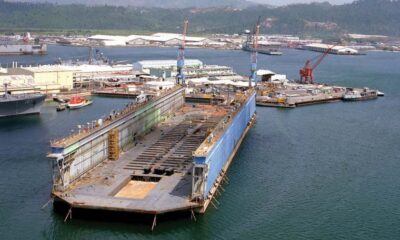UBA America, the United States subsidiary of United Bank for Africa (UBA) Plc hosted diplomats, government officials and business leaders to a networking reception in partnership with the esteemed Business Council for International Understanding (BCIU) and the U.S. Department of States in Washington DC on Monday .
The event which was held on the sidelines of the ongoing IMF World Bank Spring Meetings was organised by the BCIU and US Department of State to enhance collaboration and fortify commercial diplomacy among nations, institutions and individuals.
Speaking during the event, UBA’s Group Managing Director/Chief Executive Officer, Oliver Alawuba, noted that the bank’s co-hosting of the event via its American subsidiary, underscores its commitment towards cultivating robust relationships within the development communities in the United States.
He said, “As a distinguished member of BCIU, a non-profit organisation providing customised commercial diplomacy services, UBA Group and UBA America share BCIU’s vision of actively pursuing strategic opportunities, contributing to global economic cooperation, deepening of economic diplomacy, facilitating ideas, forging partnerships, and adding value for all stakeholders.”.
“Our resolve to co-host this Networking Reception symbolises our dedication to fostering inclusive economic growth and partnership across borders. By leveraging platforms like this, we can collectively address shared challenges and seize opportunities for sustainable development,” he stated further.
BCIU is a non-profit Association comprising of policy experts, strategic advisors, and trade educators, and offers bespoke commercial diplomacy services to the world’s governments and leading organisations, from Fortune 100 companies to global investors and multilateral institutions.
Only last year, the CEO UBA America, Sola Yomi-Ajayi, was appointed to the Board of BCIU, where she collaborates with fellow board members to ensure the organisation operates in alignment with its by-laws and New York 501(c)3 non-profit legislation.
Yomi-Ajayi has been committed to nurturing long-term organisational growth and sustainability, thereby reinforcing the bond between UBA America, BCIU, and the broader international community.
UBA America is the United States subsidiary of United Bank for Africa (UBA) Plc, one of Africa’s leading financial institutions with presence in 20 African countries, as well as in the United Kingdom, France, and the United Arab Emirates. UBA America serves as a vital link between Africa and the global financial markets, offering a range of banking services tailored to meet the needs of individuals, businesses, and institutions.
As the only sub-Saharan African bank with an operational banking license in the U.S., UBA America is uniquely positioned to provide corporate banking services to North American institutions doing business with or in Africa.
UBA America delivers treasury, trade finance, and correspondent banking solutions to sovereign and central banks, financial institutions, SMEs, foundations, and multilateral and development organizations. Leveraging its knowledge, capacity, and unique position as part of an international banking group, the Bank seeks to provide exceptional value to our customers around the world.


 Forex2 weeks ago
Forex2 weeks ago


 Naira2 weeks ago
Naira2 weeks ago
 Naira4 weeks ago
Naira4 weeks ago
 Billionaire Watch1 week ago
Billionaire Watch1 week ago
 Company News4 weeks ago
Company News4 weeks ago




 Naira2 weeks ago
Naira2 weeks ago




 Naira1 week ago
Naira1 week ago




 Naira4 weeks ago
Naira4 weeks ago

















